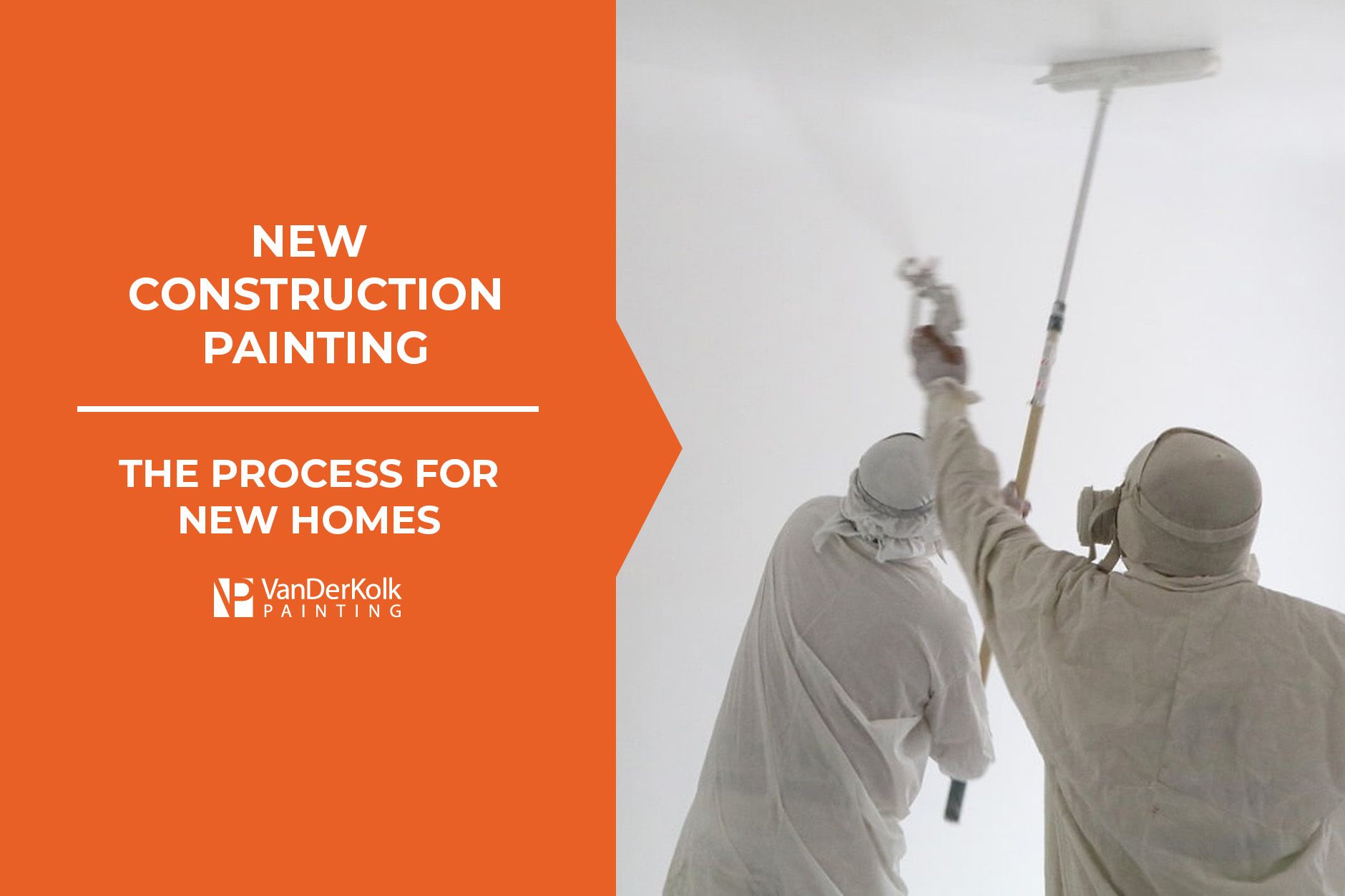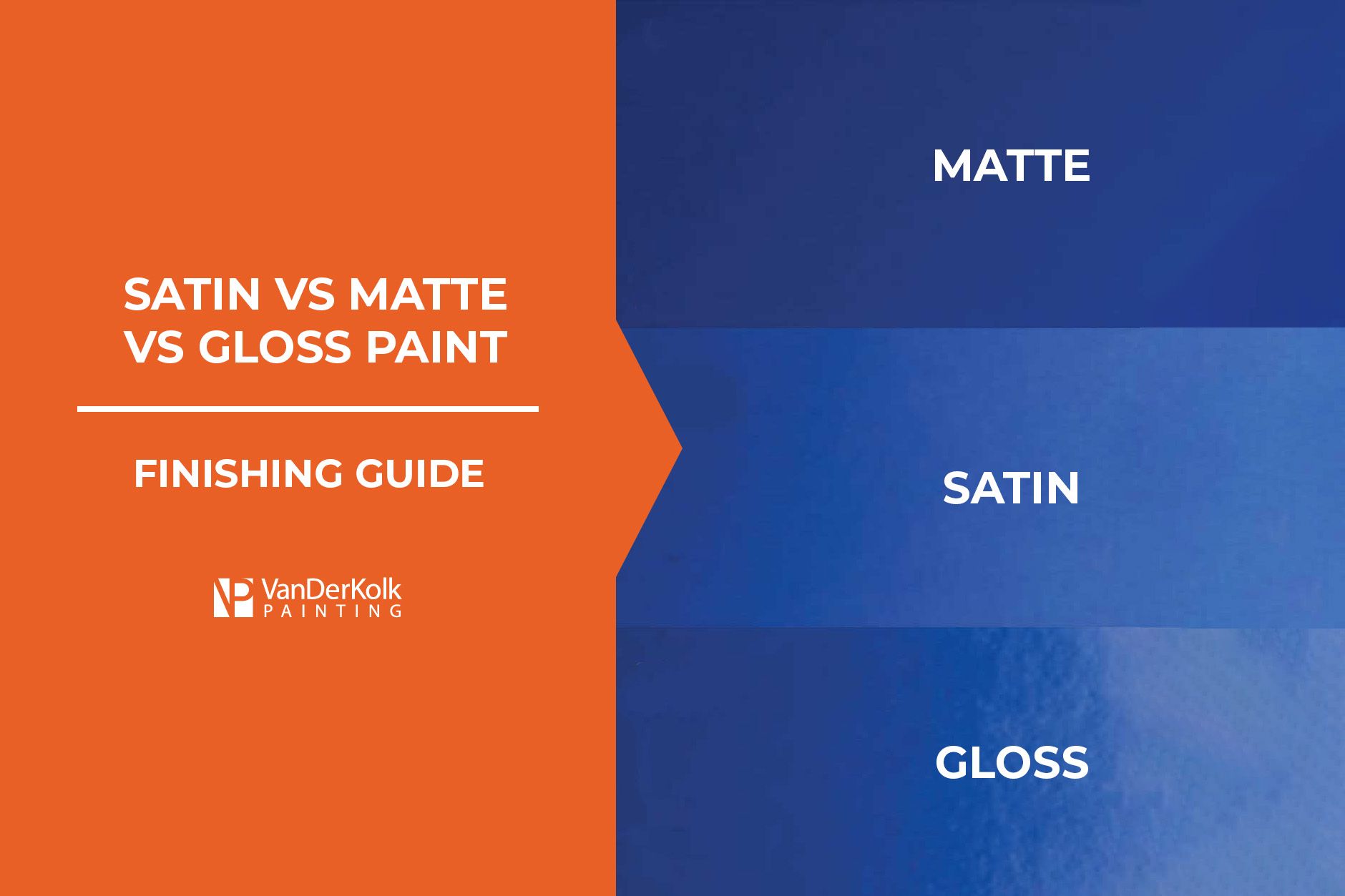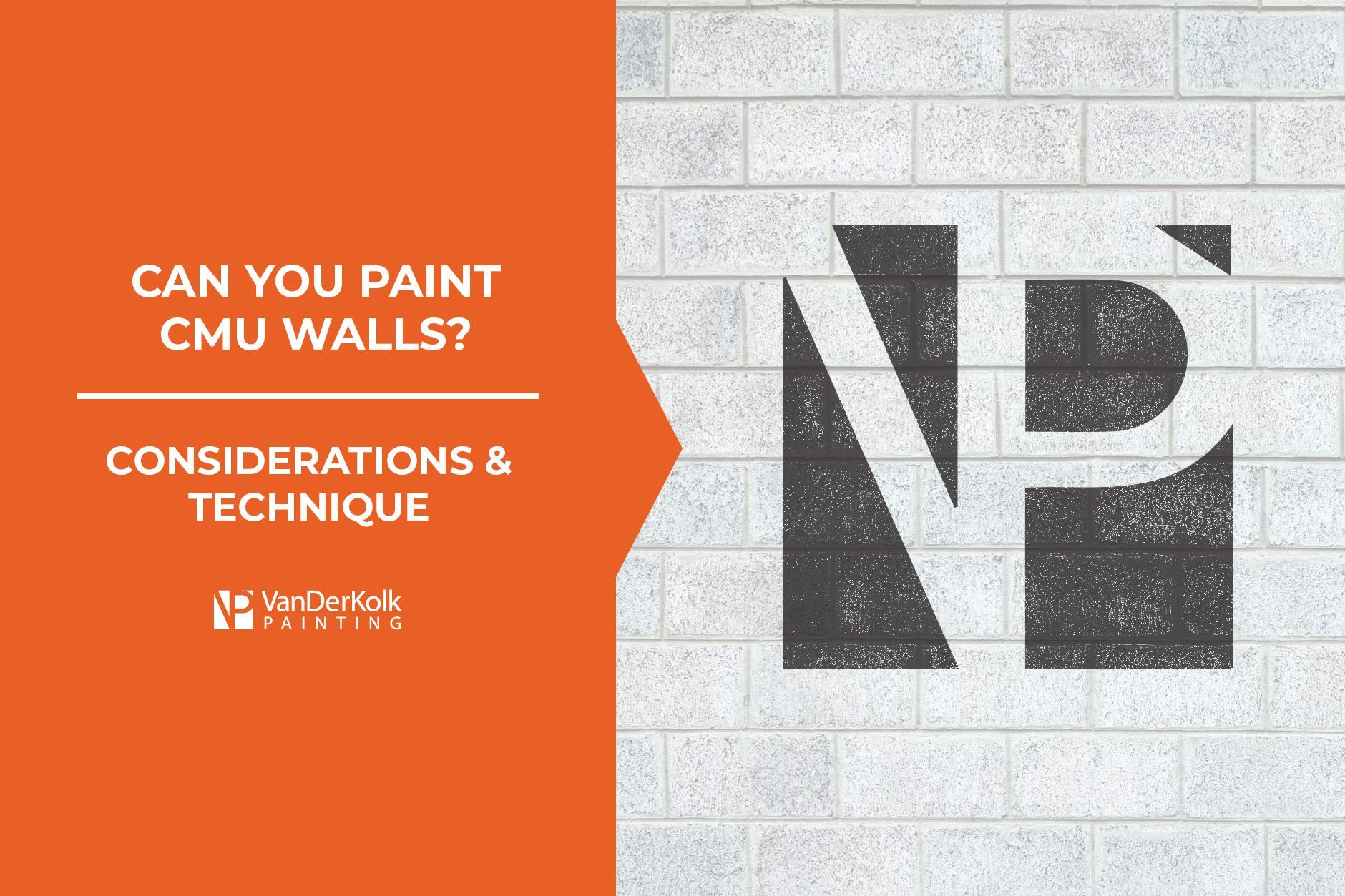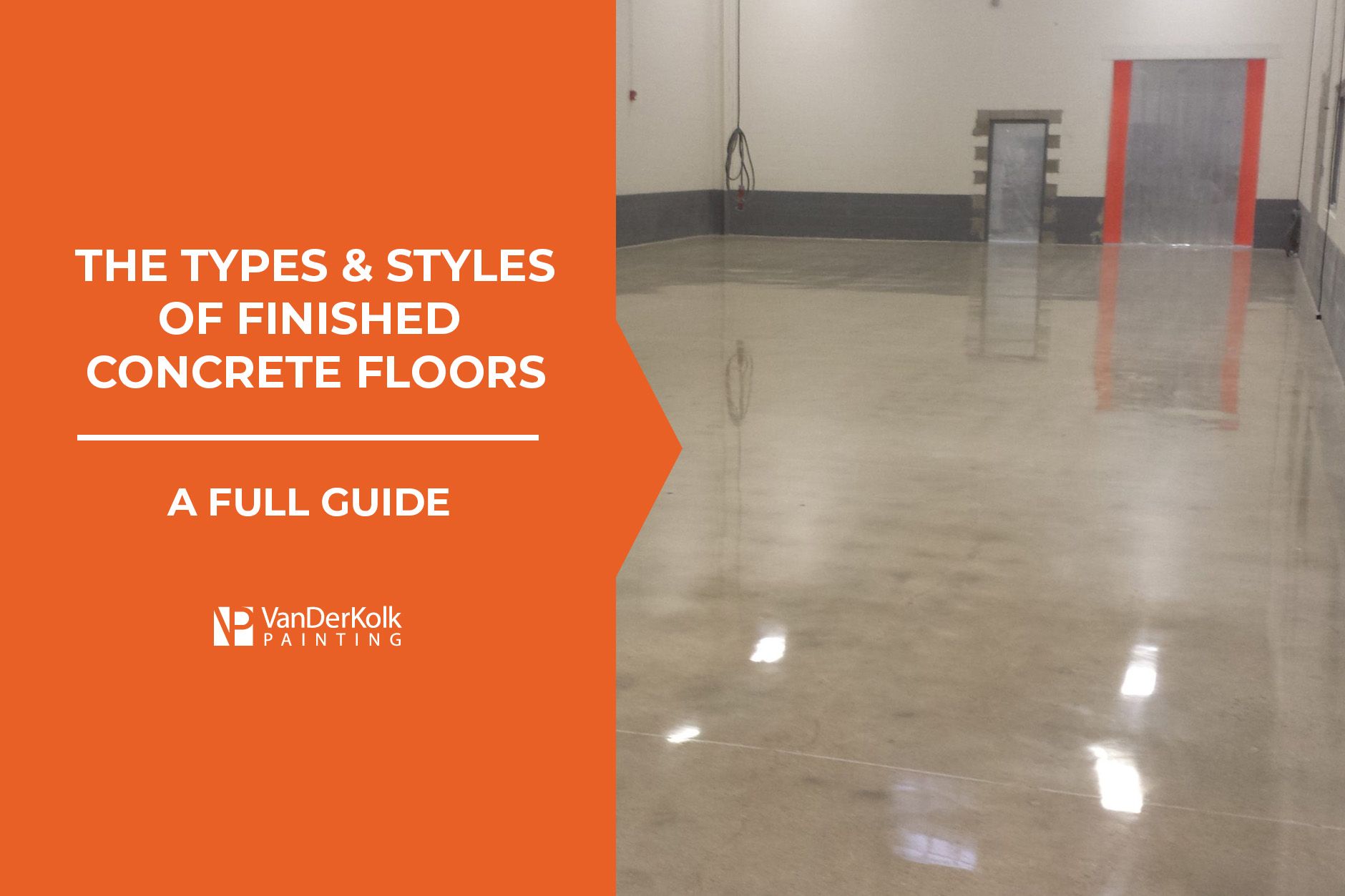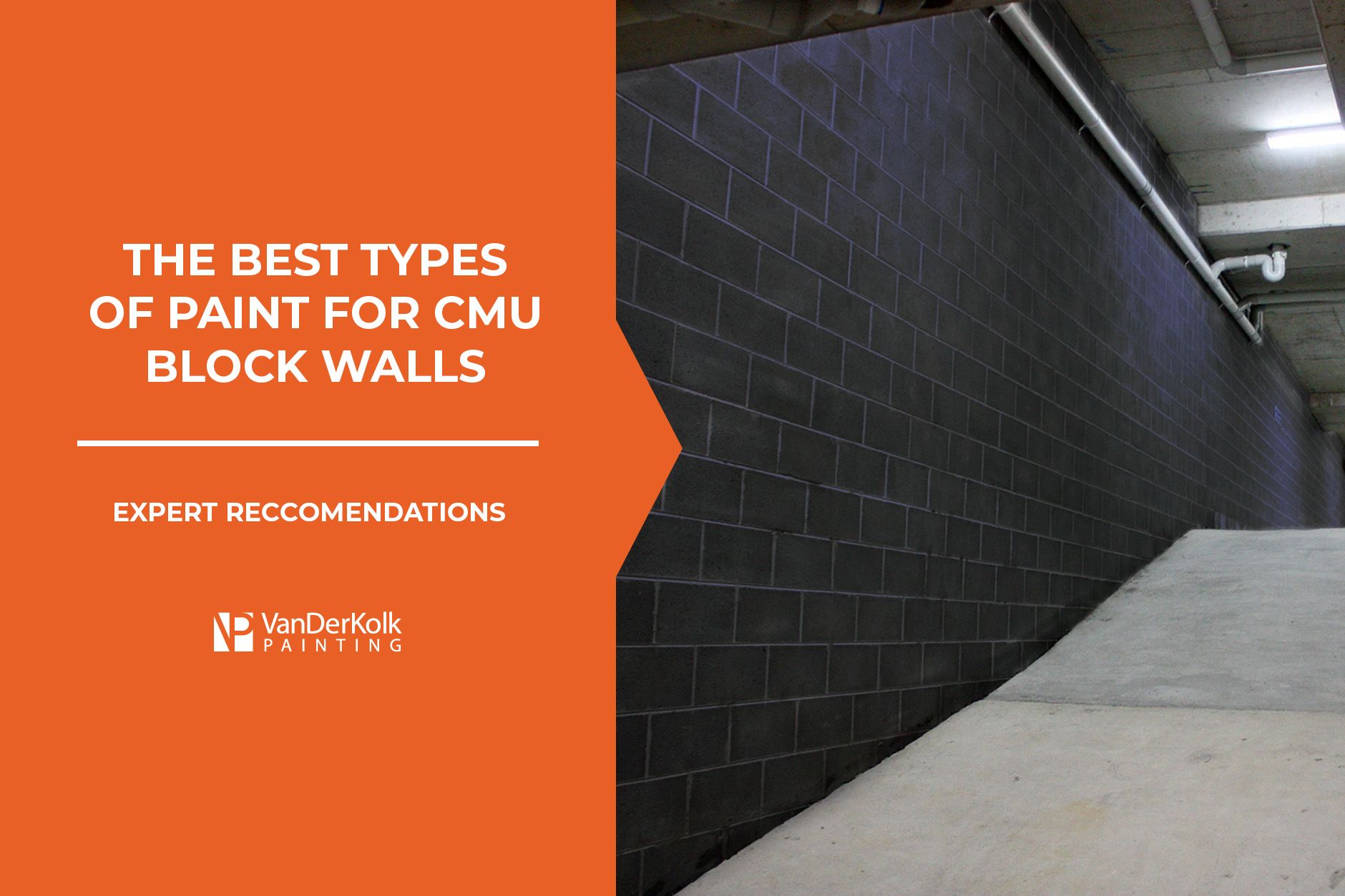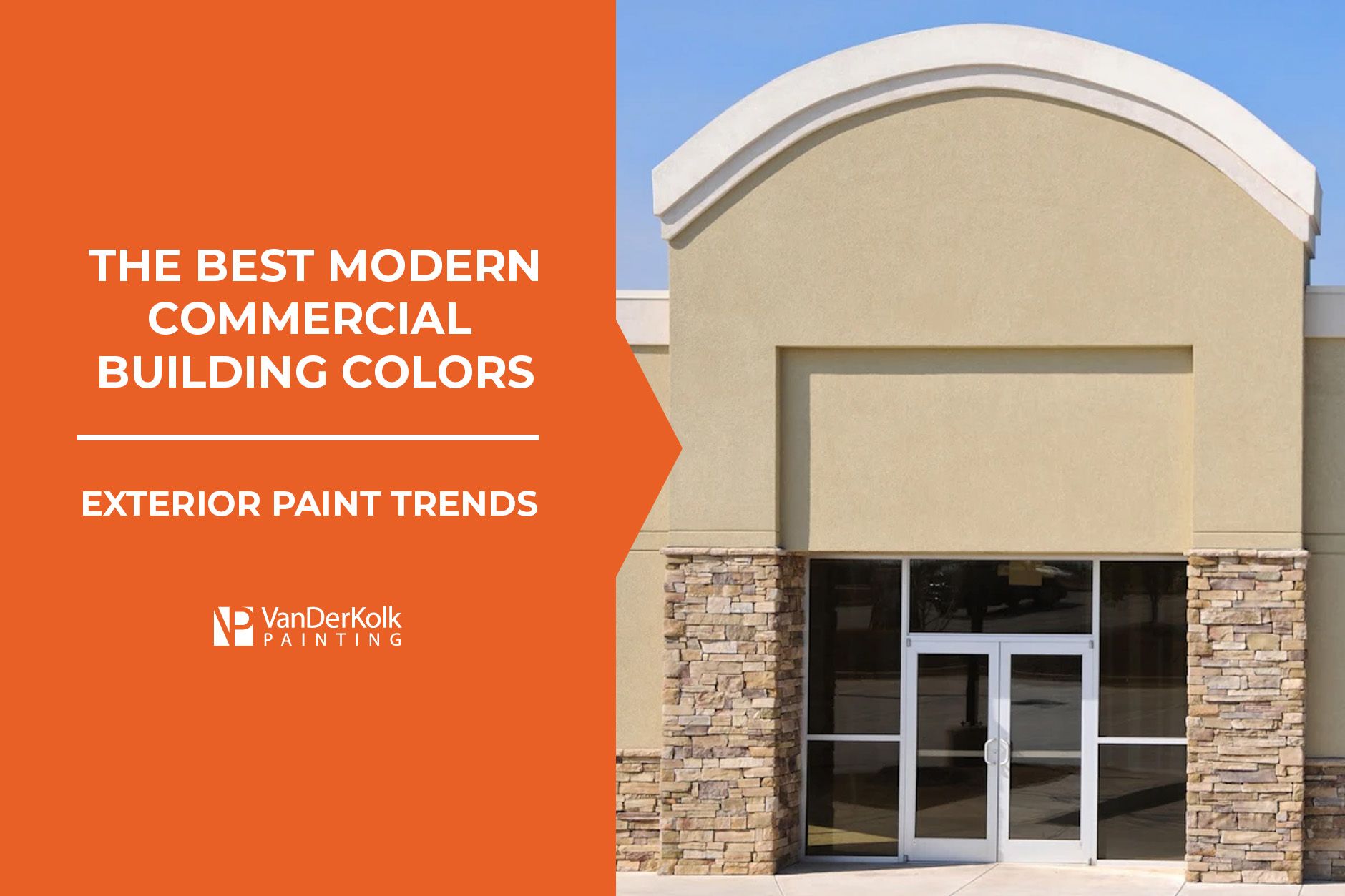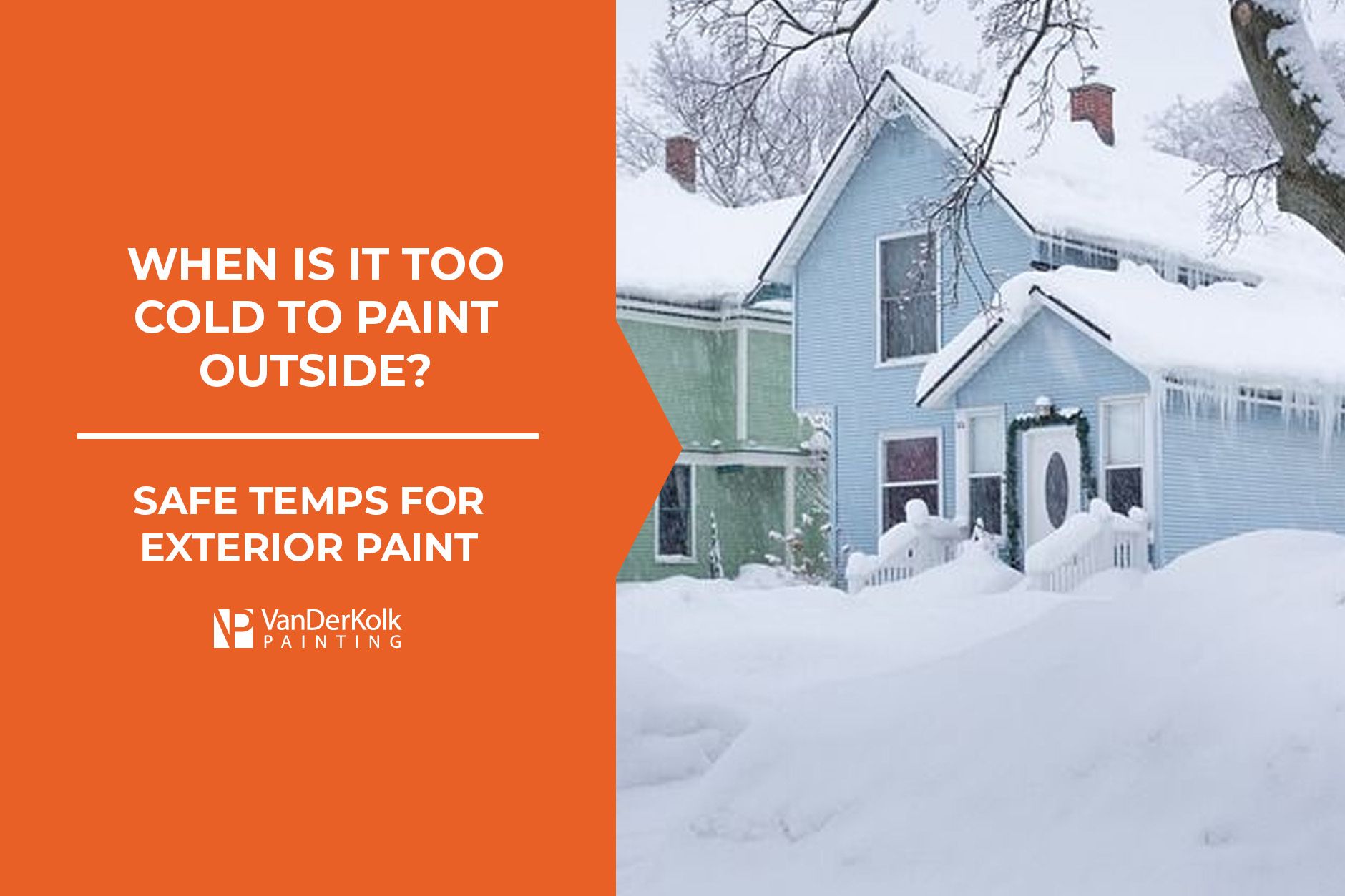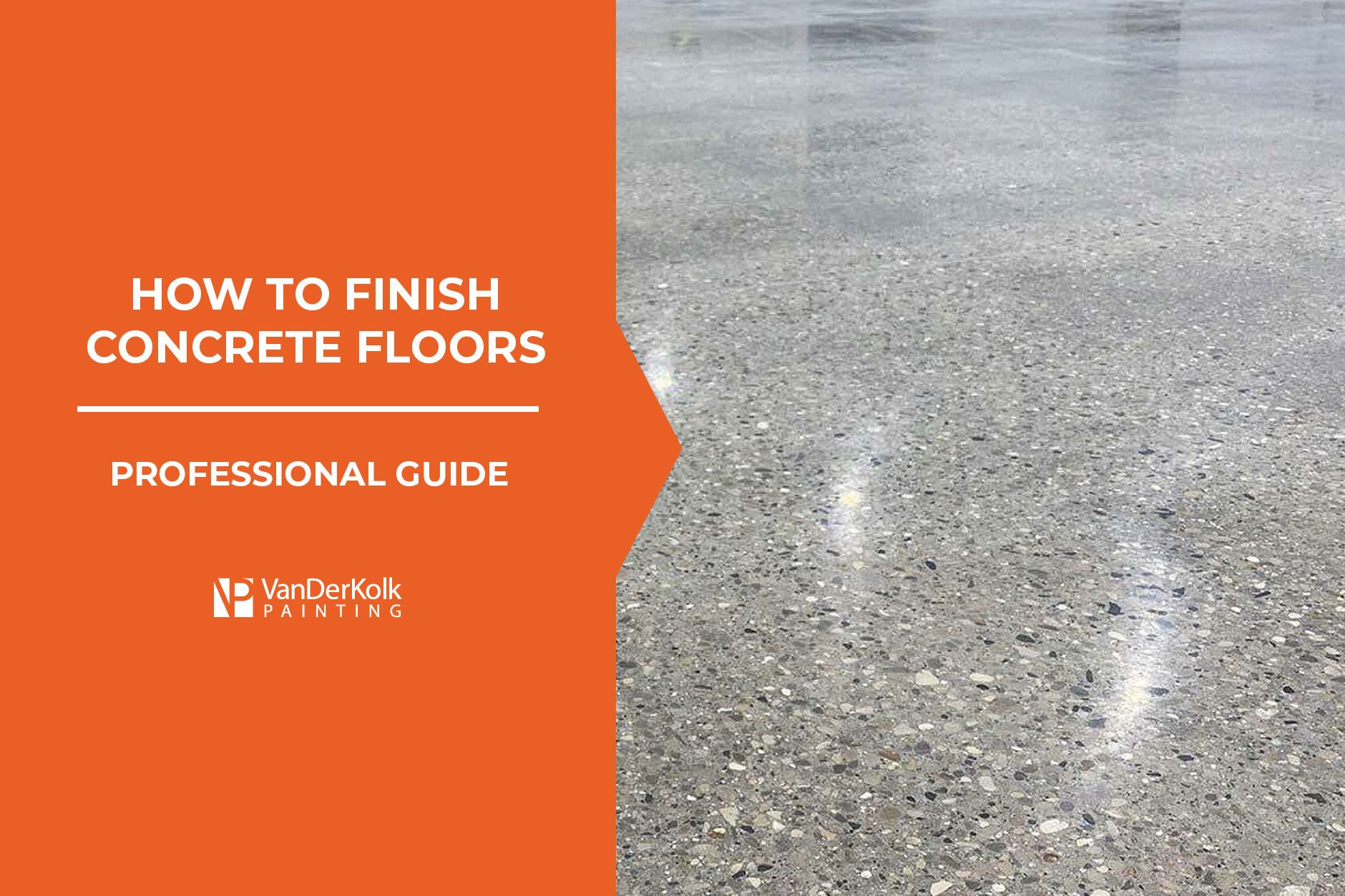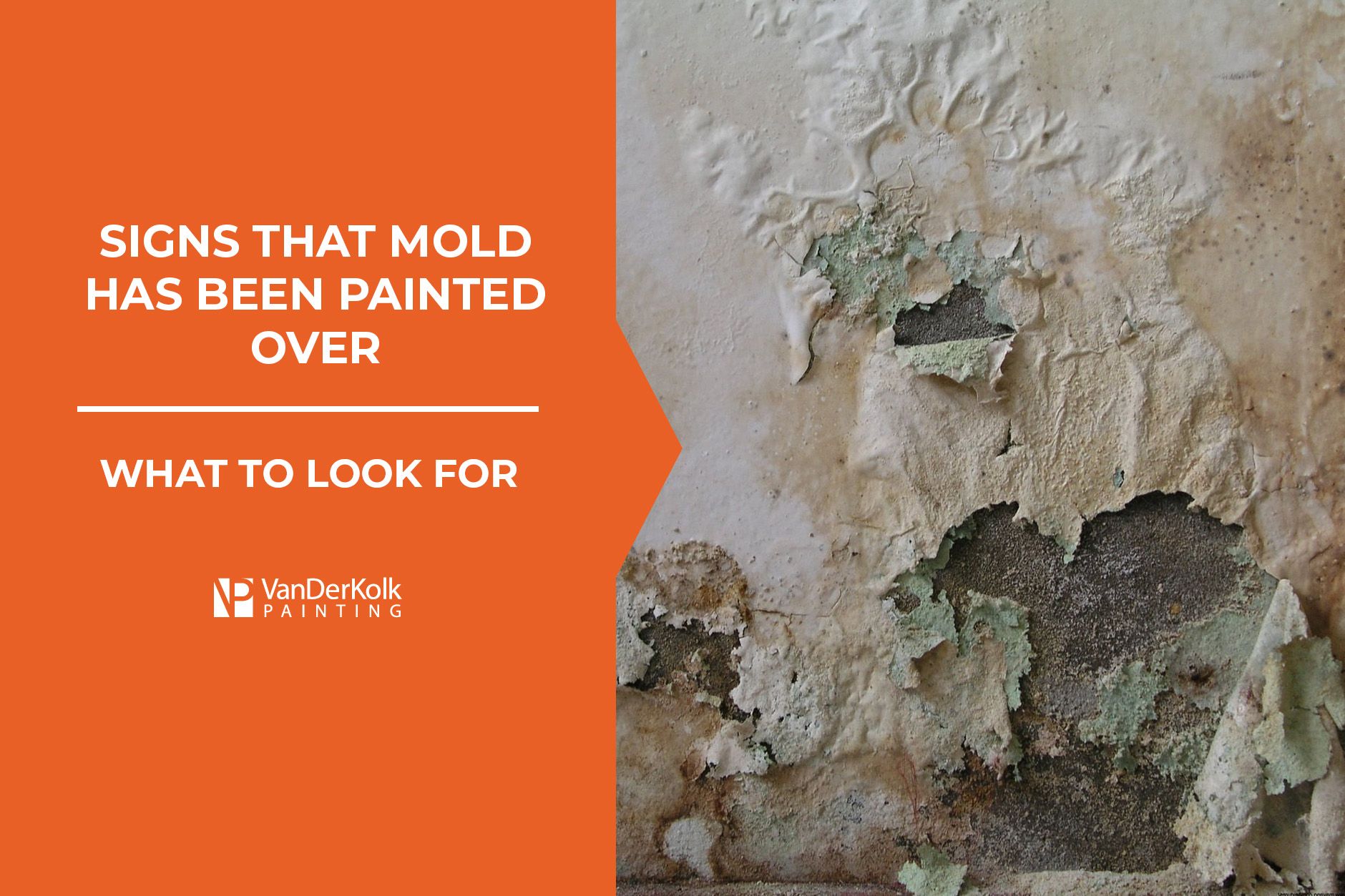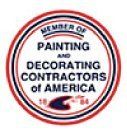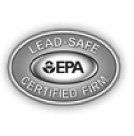How Long Do Epoxy Floors Last?
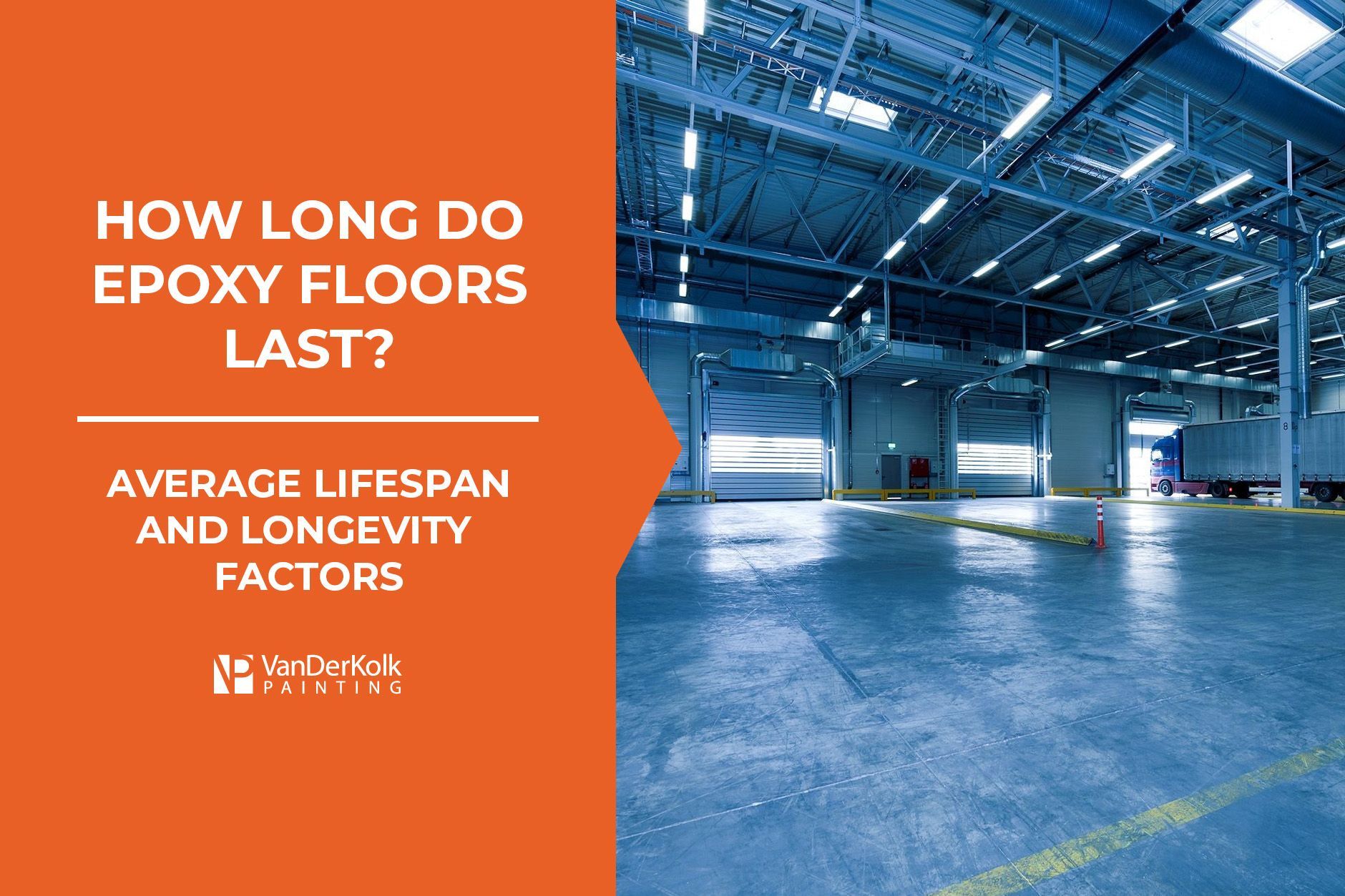
Epoxy is a great choice for commercial properties as it offers durability and enhances aesthetic appeal. Not only is it highly resistant to water and chemicals, but it also allows for customization to match the style of your company’s brand or facility.
Moreover, epoxy can be applied directly over existing floors, saving time and money. However, like other flooring options, epoxy will eventually need replacement. How long do epoxy floors usually last? There are several factors that influence the lifespan of epoxy floors.
VanDerKolk Painting is a commercial and industrial painting company that offers
concrete coating services. Our concrete coating specialists explore the various factors that affect the lifespan of epoxy floors and provide an average lifespan based on historical data below.
What Is An Epoxy Flooring System?
Epoxy consists of resin and a hardener that combine to form a tough plastic material. Epoxy resin is sold in a liquid state and can be poured onto various surfaces, such as concrete, wood, or other flooring options.
Epoxy flooring is commonly found in commercial and industrial buildings because epoxy is known to be incredibly strong, durable, and chemical-resistant. Epoxy floors can also be a very environmentally friendly flooring option because many epoxy options are low in volatile organic compounds. Epoxy floors also don’t tend to fill landfills like vinyl composite tiles.
How Long Do Epoxy Floors Last In Commercial Settings?
The lifespan of an epoxy floor depends on several factors. Daily foot traffic and wear and tear play a major role. When floors experience heavy usage, they can gradually develop scratches and scuffs. A few factors that can influence how long an epoxy floor lasts, include:
- Foot traffic
- Mechanical traffic
- Vehicular traffic
- Use of heavy carts
Unsurprisingly, residential epoxy floors typically last longer than commercial epoxy floors due to the lower levels of foot and vehicle traffic. A residential epoxy floor can last anywhere from 10 to 20 years.
An epoxy floor in a commercial building can still last 10 to 20 years, but this isn’t always the case. The epoxy floors in commercial buildings with heavy traffic may only last two to three years. Epoxy floors often have shorter lifespans in factories, restaurants, and auto garages. Nevertheless, building owners that provide proper floor care and maintenance can make their floors last longer than three years despite heavy traffic.
Why Should You Use Epoxy Floors For Your Business?
Epoxy floors are perfect for commercial flooring. Epoxy floors are ideal for places like warehouses, auto dealerships, restaurants, and industrial buildings, but they can be used in any commercial setting. There are several benefits epoxy floors can provide. Some of the largest benefits can be found below.
Cost-Effective
Epoxy flooring can help you save money by avoiding costly floor removal. It's a cost-effective option for business renovations, as it can be applied directly on existing floors.
Chemical-Resistant Floors
Epoxy floors are chemical resistant and help you avoid costly repairs and replacements caused by chemical exposure. Unlike other types of flooring, it can withstand repeated contact with chemicals, protecting your floor and saving you money in the long run. Even spills, splashes, and corrosive elements won't harm this durable flooring option.
Durability & Long-Lasting Protection
Epoxy is far better than wood, carpet, and tile in offering durable protection against spills, stains, and shock. Its long-lasting nature eliminates the need for frequent replacement. Additionally, epoxy protects the concrete from damage like wear and tear, crumbling, stains, and cracks.
Eco-Friendly
Epoxy stands out as an eco-friendly flooring option due to its longevity, requiring fewer replacements compared to other choices. It generates less waste during installation as old flooring doesn't need removal. Many epoxy options also contain low levels of
VOCs. Despite being a chemical compound, epoxy actually reduces environmental impact.
Factors That Affect How Long Epoxy Floors Last
Epoxy floors are known for having a long, durable working life; however, the longevity of this flooring option depends on several factors. The largest factors that influence the lifespan of epoxy floors can be found below.
Traffic
Whether from people or heavy machinery, high traffic exerts stress on the epoxy floor. Such areas experience faster wear and tear. However, applying an extra topcoat can provide added protection to improve longevity.
Type Of Industry
The durability of epoxy floors varies across industries. In some sectors, like chemical plants with frequent spills, floors may need to be replaced more frequently. While epoxy is generally chemical-resistant, prolonged exposure can eventually affect the floor's integrity and cause wear and tear.
Sunlight Exposure
Epoxy floors are strong, but they are vulnerable to sunlight. Extended UV exposure causes the floor to fade and deteriorate into chalky residue, shortening its lifespan. Epoxy floors are ideal for areas with minimal or no direct sunlight.
Under Flooring
Although you can apply epoxy to various existing floors, the under-flooring still matters. If the "original floor" is robust, the epoxy coating only enhances its strength and lifespan. Commercial concrete flooring has a minimum PSI of 3000; anything below 2500 is not advised.
Most seasoned, experienced flooring experts will inquire about the original flooring during the consultation so they can create strategies to maximize the longevity and durability of your new epoxy floor.
Maintenance
Proper maintenance and timely touch-ups ensure your commercial epoxy floor lasts longer. Follow these tips to keep your epoxy flooring in pristine condition:
- Cleaners: No matter what, it's best to avoid using brushes or rough pads for cleaning your epoxy floor. These can cause abrasions that gradually wear down the topcoats or sealers, including antimicrobial coatings. Instead, use a soft mop for effective and gentle cleaning
- Cleaning Frequency: Regularly clean your commercial floors to prevent debris from scratching the surface like sandpaper
- Repairs: Timely repair damage to your epoxy floor to prevent small cracks from worsening over time when left unchecked
Skill of Installer
Believe it or not, the skill of the epoxy floor installer plays a major role in the lifespan of commercial epoxy floors.
A skilled epoxy floor installer will perform rigorous prep work to prepare the floor for epoxy. Floors need to be cleaned and degreased for the epoxy to form a strong bond with the underflooring. Food prep is one of the key factors in determining how long your industrial epoxy floors will last.
Layer Thickness
A thicker epoxy layer increases the lifespan of your epoxy flooring system. Industrial floors should ideally have a thickness of 50 microns or more.
Topcoat Quality
Your epoxy floors can also last longer, provided they have high-quality topcoats. Often, durable scratch-resistant layers are achieved by including additional flooring substances. Many varieties of topcoats are available for various purposes, such as Urethane, that you can use to prevent abrasions.
How to Identify When Your Epoxy Floors Need Replacing
There are certain visual signs you can look for to determine whether or not your epoxy floors need to be replaced. The most obvious sign is the presence of creases, dents, cracks, or chips on the floor. These cracks may start small but grow into larger dents if left unattended. While you don't have to replace the floors right away, it's best to address these issues promptly.
Addressing cracks in a timely manner is important because even small cracks can cause significant problems. For instance, moisture can seep into the cracks, leading to mold growth and staining. Once moisture penetrates the epoxy, it can enlarge the cracks, resulting in noticeable bumps and divots when rolling carts over the floor. These issues worsen if you let the cracks grow.
One of the best things about epoxy is that you don't need to completely redo the floor when abrasions or scuffs appear. Instead, it can be recoated or retextured to maintain its durability. Also, it’s possible to apply epoxy only to damaged areas, which saves you time and money.
How to Extend the Lifespan of Your Commercial Epoxy Floors
Looking to extend the life of your epoxy floors beyond their expiration date? Make sure to adopt a routine maintenance plan with the maintenance activities provided below.
Regular Cleaning
Maintain your epoxy floor's appearance and safety by establishing a consistent cleaning routine. You should sweep daily with a soft-bristle broom or dust mop to remove dry debris, and use a damp mop and mild detergent for occasional wet cleaning. This cleaning work will not only preserve the aesthetics of the flooring but also maintain its slip-resistant qualities as well.
Prompt Repairs
To keep your epoxy floor in good shape, check for signs of damage like chips, cracks, or peeling. If you find any damage, take prompt actions to address these issues before they get worse. This proactive approach will help you avoid more extensive and expensive repairs down the road.
Use Proper Cleaning Products
Protect your commercial epoxy floors by using cleaning products that are specifically made for them. It's best to choose pH-neutral and non-abrasive solutions to ensure epoxy floors last longer. Also, steer clear of harsh chemicals like bleach or ammonia, as they can harm the epoxy coating and diminish its luster.
Professional Maintenance
Keep an eye on your epoxy floor's condition and arrange professional maintenance at regular intervals. This can involve tasks like resealing, repairing cracks, or buffing the surface to restore its shine and luster.
Protect Surface
To prevent abrasion or cracking, place rubber mats or protective pads in high-traffic areas or beneath heavy equipment, machinery, or furniture. This helps distribute weight evenly and reduces stress on the floor. Remember to clean the areas near and under the mats to maintain the floor's longevity. Additionally, it's best to use caster wheels for heavy items to enable smooth movement without causing any damage.
Minimize UV Exposure
Reducing Ultraviolet (UV) radiation exposure helps prevent fading, discoloration, and degradation of your floors over time. Install window treatments or use UV-blocking window films to reduce sunlight's impact. Moreover, you can also apply UV-resistant top coats as an extra layer of protection. This helps maintain the floor's appearance and durability for a longer period.
Repair Or Install Commercial Concrete Epoxy Floors With VanDerKolk Painting
The concrete coating professionals can help you repair or install concrete epoxy floors with our concrete coating services. Our skilled team will handle the installation with care to ensure durability and longevity. We’ve installed epoxy floors for a wide range of companies and building types. Regardless of whether you own a factory, small commercial building, workshop, or garage, we can help you repair and protect your floors.
When you work with VanDerKolk Painting, you'll enjoy an attractive, safe flooring solution for years to come. Our “quick-set” products also allow heavy equipment to operate on the floors within 15 minutes of application to avoid downtime. We service commercial and industrial buildings throughout West and Central Michigan. You can learn more about our epoxy floor coating services and request a free quote by pressing the live chat button, calling
(616) 202-6570, or filling out a
free quote request form.
Request A Free Quote
Our Services
Residential Services
Commercial & Industrial Services

